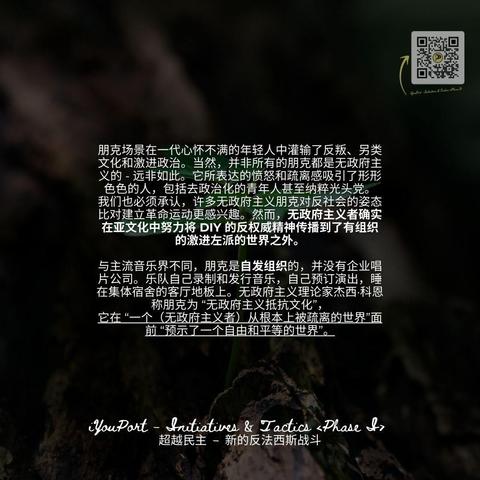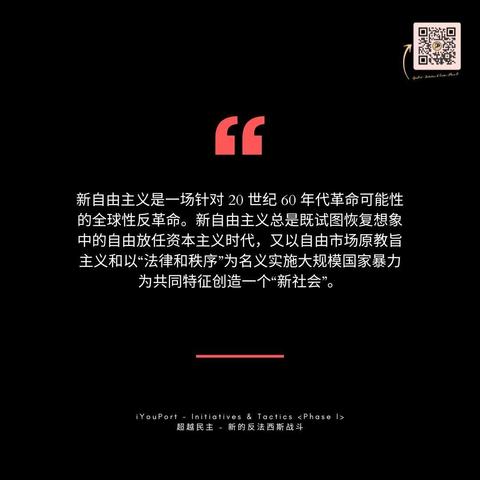@RichardJMurphy Finally, that #neoliberalism is dangerously toxic is becoming a little more mainstream! This may be good…if we survive Trump.
Recent searches
Search options
#neoliberalism
在马克思主义占主导地位近一个世纪之后,无政府主义是如何从一个“边缘现象”发展成为抵抗资本主义全球化运动的核心力量的?
本文探讨了无政府主义如何在反革命时代获得重生。
对于当下正处于新一轮反动时代大门口的我们这代人来说,本文所提供的历史知识和见解值得更大范围周知 —— 以帮助您发觉和团结身边更有希望的革命力量。
本文和其他相关资料在近期的反法西斯社区新成员学习组中采用,现分享給所有读者。
其中嵌入的链接中很多是相关书籍的免费下载地址,并将部分书籍封面作为插图以方便您寻找。
这些书籍都有一定代表性,我们视其为推荐阅读,尤其是对于初步接触进步派思想的朋友来说。在华语读者熟悉的马列主义和新自由主义反动的两种主导气候中,这些书籍可能不常见。
“超越民主”更新《从旧时代的灰烬中破土而出 - 反革命时代的无政府主义重生》
https://iyouport.notion.site/1ca34ca2d46d8057a8a7e5db7f1d7996
Do you know who is going to suffer from the shitty tariffs of Trump? US' working class.
The amount of wealth of the bourgeoisie now is extreme but there is no plan for redistribution of this, stolen from the working class, wealth. These ridiculous measures Trump announced are just another move against the weak layers (most of them define themselves as middle-class) of society. They will double and triple pay the intention of their bourgeoisie to hold all of her profits.
#tariffs #trump #usa #uspol #economy #classwar #capitalism #neoliberalism
Apparently Reid Hoffmann in his new book Superagency (probably with ChatGPT) writes that: ”Personalisation increases freedom”
No. Freedom is the abundance of choices. Algorithmic personalisation is the withering of choices, a removal of agency. Freedom from thinking, if anything!
This is Orwellian doublethink, and from a big US Democratic Party donor, too.
https://open.spotify.com/episode/6wXDbcUCPUPZYXeGclecSv
#AI #algorithms #neoliberalism #superagency #bookstodon

"What the two of them so effusively believe about growth is more or less what I think about redistribution. Which is to say: when you redistribute wealth, you in fact hasten a present that is radically different from the one we currently know.
In an unequal society where the majority must invest the lion’s share of their time and energy into the labour required to obtain the bare necessities of life, individuals lose much in the way of personal freedom and life satisfaction. But we also collectively sacrifice unfathomable quantities of human creativity and potential. There might be abundant growth, but that can matter very little if its fruits aren’t broadly shared.
Redistribution does not equal, as Klein and Thompson assert, a mere “parceling out of the present.” In a very difference sense than theirs, it represents its own agenda of abundance — one reflecting the richest egalitarian ideas of the 19th and 20th centuries. The liberalism of the 21st might reject those ideas, but many of us on the left still see them as indispensable. Socialism, contrary to what many of its critics have historically claimed, is first and foremost concerned with human freedom: freedom to think, freedom to dream, freedom to create, freedom to live unburdened by toil
(...)
Klein and Thompson appear to believe distributional questions can be mostly elided if enough new technology is invented and a sufficient quantity of stuff is built and produced. Contentious debates about degrowth aside, I find this assertion vastly more improbable and utopian than the project of universal social welfare or the realization of social and economic rights. Scientific and technological innovations can be hugely beneficial, but until we live in the world of Star Trek: The Next Generation it’s unlikely they will ever compensate for the dearth of social and economic justice."

@davidho.bsky.social In case anyone was in doubt about how sociopathic Wall Street bankers are.
Global warming is happening, they say, so invest now in air conditioning stocks!
"The big banks’ acknowledgment that the world is likely to fail at preventing warming of more than 2 degrees Celsius above preindustrial levels is spelled out in obscure reports for clients, investors and trade association members. Most were published after the reelection of President Donald Trump, who is seeking to repeal federal policies that support clean energy while turbocharging the production of oil, gas and coal — the main sources of global warming.
…
"Morgan Stanley’s climate forecast was tucked into a mundane research report on the future of air conditioning stocks, which it provided to clients on March 17. A 3 degree warming scenario, the analysts determined, could more than double the growth rate of the $235 billion cooling market every year, from 3 percent to 7 percent until 2030."
https://www.eenews.net/articles/big-banks-predict-catastrophic-warming-with-profit-potential/
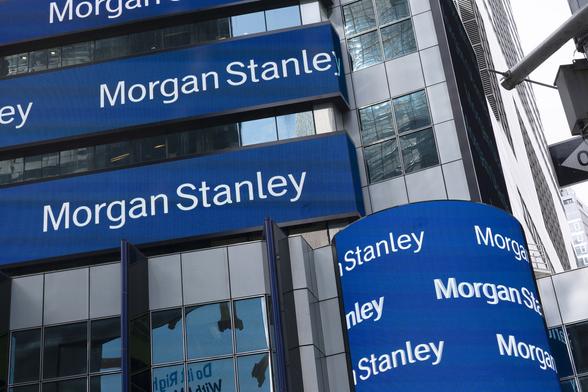
"The problem, indeed, is a more general one. No populism, right or left, has so far produced a powerful remedy for the ills it denounces. Programmatically, the contemporary opponents of neoliberalism are still for the most part whistling in the dark. How is inequality to be tackled – not just tinkered with – in a serious fashion, without immediately bringing on a capital strike? What measures might be envisaged for meeting the enemy blow for blow on that contested terrain, and emerging victorious? What sort of reconstruction, by now inevitably a radical one, of actually existing liberal democracy would be required to put an end to the oligarchies it has spawned? How is the deep state, organised in every Western country for imperial war – clandestine or overt – to be dismantled? What reconversion of the economy to combat climate change, without impoverishing already poor societies in other continents, is imagined? That so many arrows remain missing in the quiver of serious opposition to the status quo is not, of course, just the fault of today’s populisms. It reflects the intellectual contraction of the left in its long years of retreat since the 1970s, and the sterility in that time of what were once original strands of thought at the edges of the mainstream. Remedial proposals can be cited, varying from country to country: Medicare for all in the US, guaranteed citizen incomes in Italy, public investment banks in Britain, Tobin taxes in France and the like. But so far as any general, interlocking alternative to the status quo is concerned, the cupboard is still bare. (...) Politically speaking, neoliberalism has been in no great danger from either."
https://www.lrb.co.uk/the-paper/v47/n06/perry-anderson/regime-change-in-the-west
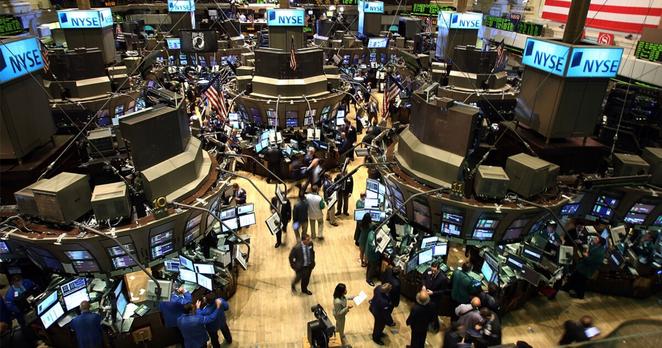
What you call #neoliberalism is late stage #capitalism, you can't have non-neoliberal capitalism, and you can't have a #socialdemocracy either.
As long as this myth of non-neoliberal capitalism exists things will only get worse. And the pseudo left of reformers and pseudo-#socialists have a large responsibility in reproducing this myth.
#marxism as religion bankrupted
"Finally, in the 1970s, a group of people on the right and left, today known as neoliberals, attacked New Deal controls over finance and the corporation as silly. They argued, in an age of “microchips, robots, and computers,” mucking around with making things like t-shirts and steel was foolish.
This argument came into politics through both sides of the aisle. The Reagan administration was run by Wall Street, with men like banker William Simon and Chicago Schooler Robert Bork organizing policy. But it was preceded by Jimmy Carter’s deregulation of shipping, banking, trains, buses, trucking, airlines, energy, and even skiing, and his appointment of Wall Street-friendly Fed Chair Paul Volcker.
In 1980, the Democratic-led Senate Joint Economic Committee published a report titled Plugging in the Supply Side. Lloyd Bentsen, who later became Bill Clinton’s Treasury Secretary during the NAFTA fight, authored it. Everyone from Paul Tsongas, to Gary Hart to Robert Reich bought this frame, as did magazines like The New Republic. By 1980, neoliberalism had become consensus. Ted Kennedy, Jimmy Carter’s ostensibly “liberal” nemesis, fought to go further than Carter in ending rules on airplanes, and Ralph Nader aligned with Citibank on deregulating finance. Many of the unions, with the exception of the Teamsters, bought into deregulation.
The consequences were immediate. The U.S. manufacturing base took a major hit as the trade deficit exploded under Ronald Reagan. Bill Clinton continued and expanded it, focusing on high-technology pursuits and a “Bridge to the 21st Century.” When you think about it, that’s weird. How can a nation keep importing more than it exports, on a permanent basis? Why would trade partners keep sending them stuff? The answer is in the part of the story that the proponents of this model suggest, which is services."
https://www.thebignewsletter.com/p/monopoly-round-up-tariffs-abundance
https://youtu.be/fWLn50NjGDA?si=g2cV9z2DwoBDKKrQ
Margaret thatcher in the UK and Ronald Reagan in the US. Their #liberialism #neoliberalism of the last 45 years has brought us inevitably to #trump. The #democraticparty has collaborated all along.
https://youtu.be/fWLn50NjGDA?si=g2cV9z2DwoBDKKrQ
Margaret thatcher in the UK and Ronald Reagan in the US. Their #liberialism #neoliberalism of the last 45 years has brought us inevitably to #trump. The #democraticparty has collaborated all along.
@dwasmkuk Hmm, am not alone in my #opinion: How has #fascism in Britain got this far? #Neoliberalism has opened the door for it https://www.theguardian.com/commentisfree/2025/mar/28/fascism-britain-neoliberalism-opened-door-for-it-labour
"It’s worth noting that, while governments have an obsession with efficiency, it’s still limited solely to cost-cutting. There seems to be little interest in, for instance, making access to #welfare payments more efficient, or #healthcare, or #childcare, as any parent who has battled on their laptop deep into the night trying to conquer the tax-free childcare scheme knows. No, efficiency is only important when attempting to immediately maximise profit."
@SandraDeHaan @sandorspruit #neoliberalism betekent alles uitbesteden als overheid en als er dan dingen veranderen niet meer de expertise of wil hebben het op te lossen
@dwasmkuk Yup, I’m pretty much convinced a lot of what is happening today is in large part thanks to #neoliberalism. It’s a toxic approach that has poisoned society and led to the ascent of lunatics like Trump.
@ChrisMayLA6 @Thebratdragon Seems the politicos are terrified of the people they are supposed to represent. Something is very wrong. Am pretty sure #neoliberalism is to blame, at least in part.
@randahl yes #neoliberalism leads to #unequality and #billionaires which leads to #fascism
Postal employees rally against #DOGE: "It’s about rich versus poor. Who built this country? It wasn’t people in suits. It was people in coveralls."
https://www.labornotes.org/2025/03/postal-workers-throng-500-rallies-save-postal-service
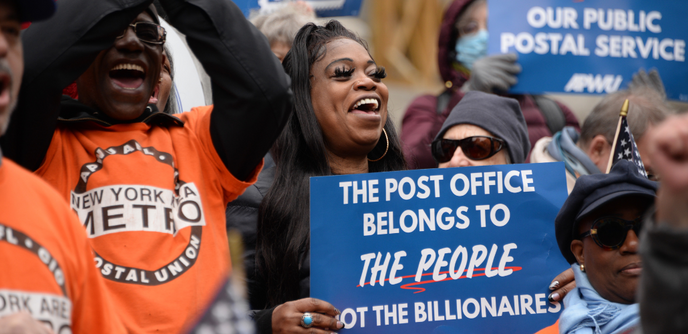
This shouldn’t even be controversial. These would have been perfectly “normal” things to do a mere 50 years ago, but #LateCapitalism / #Neoliberalism would call it #radical based only on the fact that no hierarchical corporation would profit. Because that’s the new rule. If there’s no profit to be made, then we “can’t” do it.
We deserve better.


